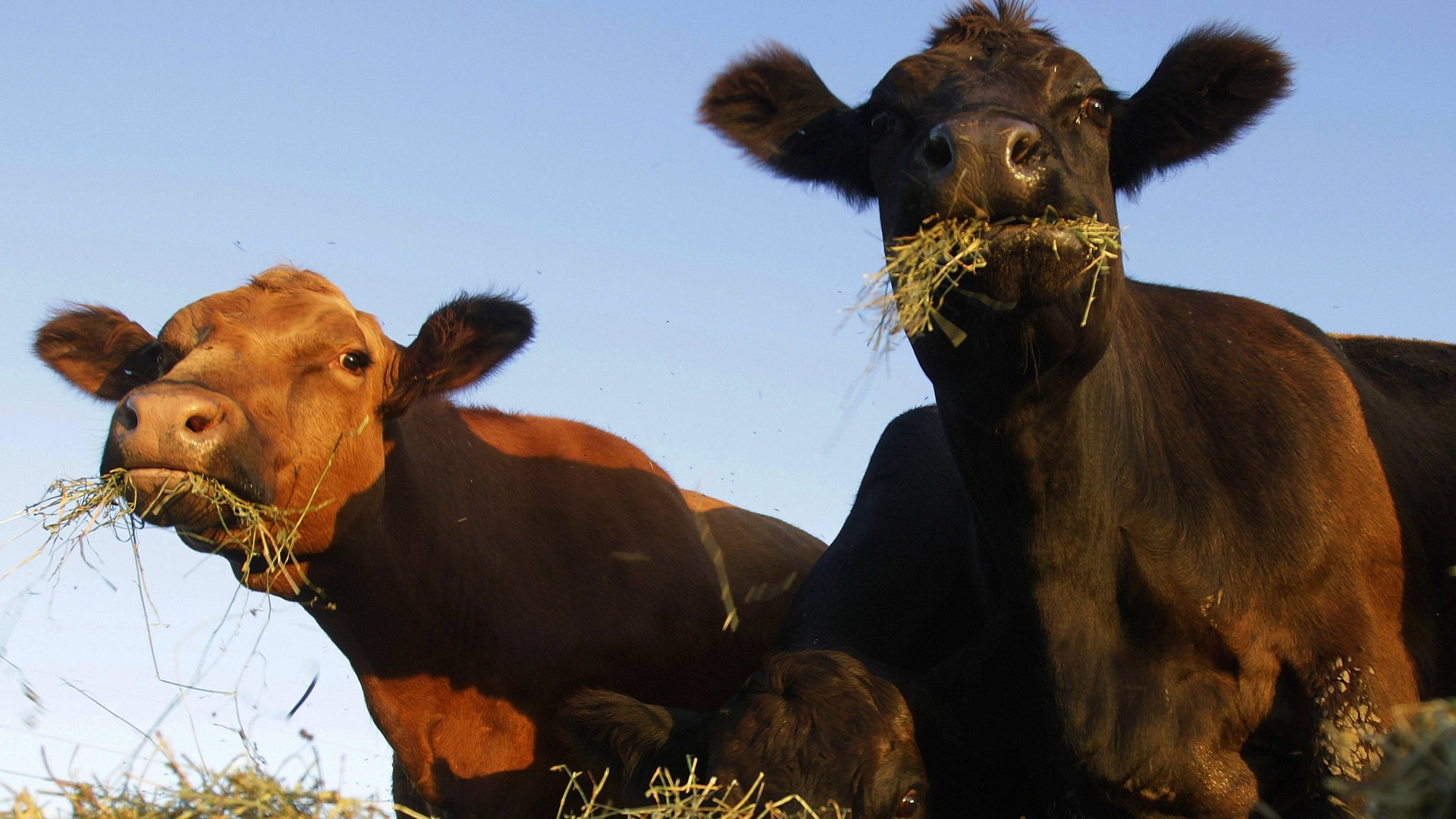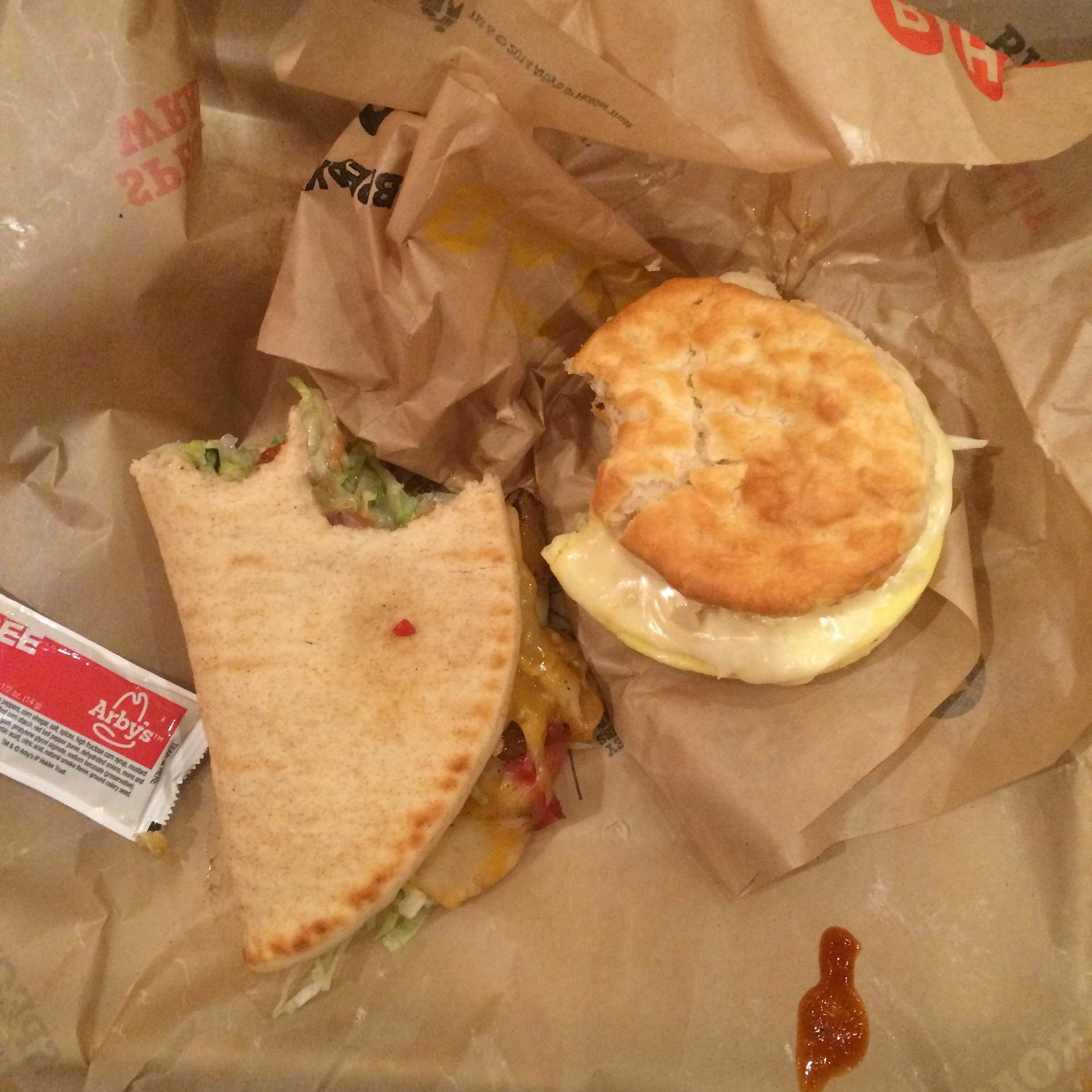Arby’s has a vegetarian menu hack and it’s actually delicious
On Thursday morning, I—a frequent writer on the evils of meat, who hasn’t eaten beef in years, fast food in probably a decade, or fast food meat in my entire life—went on an Arby’s-sponsored meat tour of New York City in advance of the opening of its first Manhattan restaurant.


On Thursday morning, I—a frequent writer on the evils of meat, who hasn’t eaten beef in years, fast food in probably a decade, or fast food meat in my entire life—went on an Arby’s-sponsored meat tour of New York City in advance of the opening of its first Manhattan restaurant.
I considered alerting the publicist to my dietary restrictions in advance, but decided against it, curious to see what Arby’s would serve up in lieu of their roast beefs and hams. Would it be an unsatisfying meal made up of the side dishes well known to vegetarians everywhere? Or could Arby’s do better?
Our first stop was Ottomanelli Brothers butcher shop, a 100-plus-year-old, high-end meatery that says it serves only grass-fed, all-natural beef and carries brands known for high animal-welfare standards, such as Niman Ranch and Bell & Evans. (Frank Ottomanelli, representing the family’s third generation in the business, told me that at his shop, “all natural” means the ranches give their cows vaccines but not routine antibiotics and don’t use synthetic growth hormones.) I declined the proffered roast beef but was told by another member of the tour that while the cut usually ”cries for mustard or horseradish,” this one was perfectly tender and needed nothing extra.
Next, our bus stopped at the famed Katz’s Delicatessen, where we were brought heaping plates of roast beef, corned beef, turkey, and other meats I couldn’t identify. I had a couple pickles that could’ve used more time in the brine.
By the time we arrived at Arby’s new location on 40th St. and 8th Avenue, set to open Dec. 14, I was hungry. Very hungry. I passed by the table laden with bacon, ham, turkey, roast beef, and brisket, to ask one of the waiters holding a tray of sandwiches about the meat-free options. Startled but gracious, he said he would see what he could do. As I got hungrier, I asked a couple more people. Someone joked that I would have to leave the restaurant.
Eventually I was told they’d make me a steak-free Steak Fajita Flatbread, and while I waited, I chatted with executive chef Neville Craw about what a restaurant chain like Arby’s had in common with a butcher shop like Ottomanelli’s. “It’s obviously aspirational,” he said. But Arby’s, with about 3,400 locations, is a relatively small chain, which Craw says means that while they, of course, source some of their meat from “the Cargill’s of the world,” they get to work with (relatively) smaller shops like Sadler’s Smokehouse in Texas, too. (Sadler’s is smaller than Cargill’s, for sure, but still one of the largest US producers of smoked briskets and pulled meats, supplying national chains like Walmart, as well as Arby’s and other restaurants.)
“It’s a marketing word but it’s a great one,” Craw told me, referring to the company’s two-year-old campaign that’s been at the heart of its impressive turnaround. ”We’re calling ourself ‘fast-crafted.'”
The “high quality” of the meats was referred to over and over again, but my understanding of quality aligns more closely with Ottomanelli’s than Arby’s. Using real smoke, as opposed to the liquid kind, to make your brisket is great, but raising the animal on pasture, without routine antibiotics or growth stimulants is a lot better. Rob Lynch, chief marketing officer at Arby’s, told me they keep up with all regulations but hadn’t made any specific animal welfare commitments yet. He did, however, point out how thick the slices of ham were.
Just as my disappointment was about to settle in, my food arrived. And it turns out that at least some of their non-meat ingredients are really good—even if the chain doesn’t really advertise them. The steak-less steak fajita (which may or may not have been the “fiery” version) comes on a flatbread made by Grecian Delight Foods, the same bread, the publicist told me, that “mom and pop Greek restaurants” around the country use for their gyros. It was fluffy, fresh (or at least fresh tasting), and, according to the ingredients list, made without azodicarbonamide, aka the yoga mat chemical commonly used as a dough conditioner by fast food chains and food companies. (Arby’s does use it in their croissants and French toast, however.) The peppers on the fajita are “fire roasted,” with just a bit of balsamic, as Craw had described to me, and, as I was pleasantly surprised to see, little else—just some xanthan gum, a common, plant-based stabilizing agent that the Center for Science of the Public Interest calls ”poorly tested, though probably safe.”
I was also given an egg and cheese biscuit, which on the menu comes with sausage, ham, bacon, or, in New York, brisket, but can easily be made without it if a customer knows to ask. It, too, was delicious. The biscuits are made in 13 locations around the country, but if they had told me they were made on premises, I would have believed them. (Maybe it’s the ten-ingredient “butter flavored oil” they’re topped with that makes them so good.) The eggs were, sadly, not cage-free or even fresh-cracked. The “scrambled egg patty” includes 13 additional ingredients besides eggs. It tasted good, though.

The executives and publicists I spoke to, as well as Craw, all seemed genuinely delighted that I liked the meat-free versions of their offerings. But when I prodded them to list these options on their menu, they balked—it’s antithetical to the chain’s “We’ve got the meats” brand. This is the same restaurant chain, after all, that actively trolls vegetarians, even creating a Vegetarian Support Hotline that tells callers to “take a deep breath and go make a salad.”
Maybe, I said, they could add these items to their secret menu, the one that includes the formidable Meat Mountain Sandwich, stacked with chicken tenders, Angus steak and five other meats. Lynch joked that their new tagline could be, “We’ve got the meats and vegetarian treats.”
Not likely to happen. But the line would be more than clever marketing—it would be the truth.